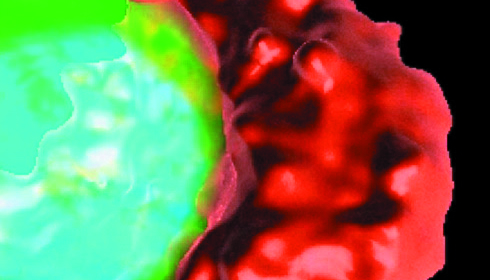
New Study Reveals Estrogen’s Surprising Role in Cancer Growth, Fueling Future Treatment Innovations
In a milestone discovery, Duke Cancer Institute researchers discovered that ooestrogen plays an unanticipated role in encouraging the growth of tumours other than those that rely on ooestrogen receptors. The study, published on September 27 in Science Advances, has the potential to drastically change the direction of cancer treatment by demonstrating the ability of anti-oestrogen medicines to improve immunotherapy outcomes across a variety of malignancies.
Ooestrogens are widely known to promote tumor growth in breast cancer cells that express estrogen receptors. However, this new study demonstrates that ooestrogens can promote the growth of malignancies that lack these receptors, such as triple-negative breast cancer, which is an aggressive illness that lacks receptors for estrogen, progesterone, and HER2.
The researchers found that oestrogen not only hinders the immune system's capacity to fight tumours, but also diminishes the effectiveness of immunotherapies, a common treatment for aggressive cancers like triple-negative breast cancer. With the help of both old patient data analysis and research with mice, they found that anti-oestrogen drugs could reverse these effects, making immunotherapies much more effective.
Donald McDonnell, Ph.D., senior author of the study and a professor at Duke University, emphasised the significance of the results. "The treatment for triple-negative breast cancer has been greatly improved with the advent of immunotherapy," McDonnell told reporters. "Here we have found a simple way to bolster the effectiveness of immunotherapy for this type of breast cancer, and the benefit was even seen in other cancers, including melanoma and colon cancers."
The study focused on the role of eosinophils, a type of white blood cell that is typically involved in allergic reactions and inflammatory illnesses. According to the study, these cells play an important role in cancer treatment via a phenomenon known as tumour-associated tissue eosinophilia (TATE). Research has demonstrated that TATE enhances the prognosis of patients suffering from a range of cancers, such as colon, stomach, oral, and liver cancer.
According to main author Sandeep Artham, Ph.D., the team discovered that ooestrogen reduces the frequency of eosinophils in tumours, contributing to tumour growth even in cancers that do not have ooestrogen receptors, such as melanoma. On the other hand, studies have shown that anti-oestrogen medications increase eosinophils' presence, thereby improving immunotherapy's efficacy.
"These findings highlight the importance of ooestrogen-receptor signalling as a regulator of eosinophil biology and TATE and highlight the potential near-term clinical application of anti-ooestrogen drugs to increase the benefits of immunotherapies in multiple tumour types," according to McDonnell.
The researchers are already planning clinical trials of an innovative anti-oestrogen medication called lasofoxifene in patients with triple-negative breast cancer, which could lead to novel treatment strategies.
This discovery opens the door to novel therapeutic options not only for breast cancer but also for a range of other cancers, providing promise for more successful cancer treatments in the near future.